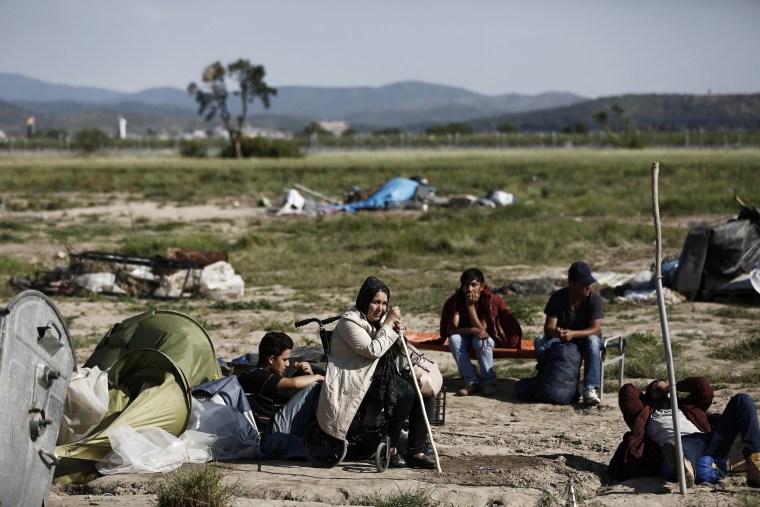A federal court has thrown out a Texas lawsuit that attempted to ban all Syrian refugees from resettling in the Lone Star State.
State officials may not block refugees or go after the International Rescue Committee, the nonprofit organization that helps them integrate into Texas communities, Judge David C. Godbey of U.S. District Court for the Northern District of Texas ordered Wednesday.
This means the end of the road for Texas’ legal maneuvers, borne out of a contentious political debate nationwide over whether the U.S. should temporarily wall out refugees.
"This ruling is a strong rebuke of unconstitutional efforts to block refugee resettlement,” Cecillia Wang, director of the ACLU’s Immigrants’ Rights Project and lead counsel for IRC, said in a statement. “It sends the clear message to other states that such attempts are not only un-American, they are contrary to the law and will fail in court.”
Related: The US is Way Behind its Goal of Accepting 10,000 Syrian Refugees
Texas had emerged as a leading figure of the more than 30 states that threatened to block out refugees late last year. In the wake of harrowing terror attacks and a heightened climate of fear, governors decried the immigration vetting process and warned that America’s humanitarian goodwill could compromise its national security.
Texas’ lawsuit took hold in December, just as six Syrian refugees were in the process of finding new homes in the Dallas area. When approached by the Texas Health and Human Services Commission about the family’s resettlement, IRC refused to divulge the refugee’s personal information. And so Texas took the contractor to court.

Texas soon expanded its lawsuit against the federal government, claiming that it violated the 1980 Refugee Act that requires a government coordinator to "consult regularly with states" regarding the sponsorship and intended distribution of refugees. Texas officials argued that they should have a say regarding where refugees are resettled.
But courts so far have rejected those claims. On Thursday, Godbey found that the commission "lacked a cause of action" to enforce the Refugee Act, and other procedural technicalities don’t force the federal government to consult with states on resettlement matters, either.
Related: Can Governors Block Syrian Refugees? Probably Not
Thursday’s development does not bode well for the other states that have tried the same line of argument to try and block Syrian refugees. Alabama filed a similar lawsuit back in January. Tennessee’s governor expressed an openness for taking the feds to court over compliance with the Refugee Act.
States have yet to find any maneuvers to legally block the federal refugee program. Godbey in February pointed to the heavily politicized debate over the process when he blocked Texas’ request for a temporary restraining order against any refugee.
“Somewhat ironically, Texas, perhaps the reddest of red states, asks a federal court to stick its judicial nose into this political morass, where it does not belong absent statutory authorization,” he wrote in February.
